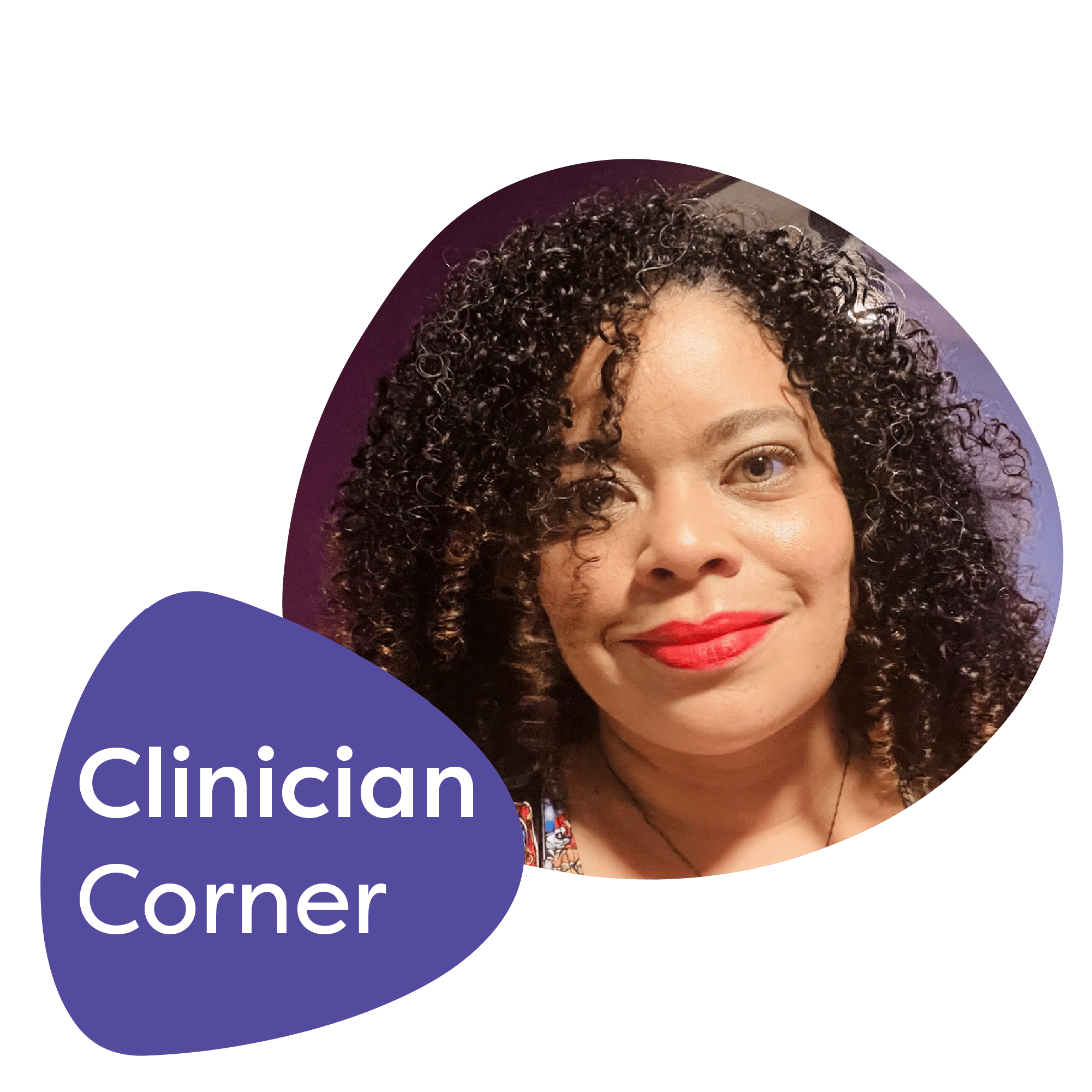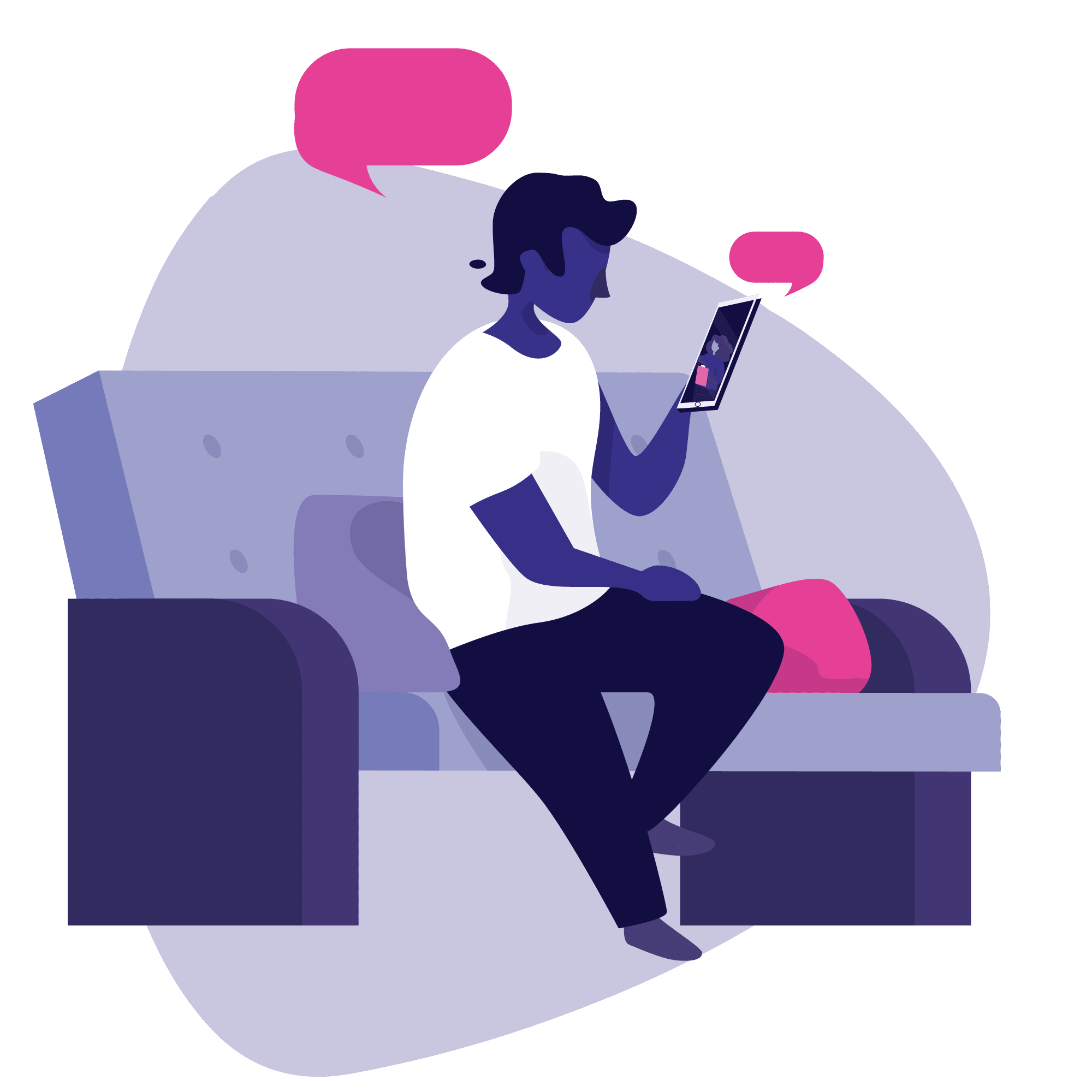Iris clinicians are at the heart of what makes our organization such a special place to work. That’s why we’re turning the spotlight on the amazing work they’re doing every day — starting with our very own Dr. Marialba Romero Medina.
Q: How did you find Iris and decide you wanted to be an Iris provider?
A: I found Iris at a time in my life where I needed a change. I wanted to expand my horizons in terms of what I was doing and what I could do considering the circumstances. I’m Latina, and I’m based in Puerto Rico. As the world knows, we went through a natural disaster a couple of years ago, Hurricane Maria. After that time, a lot of services changed here, and a lot of things that doctors could or could not do sort of modified. To put it simply, there were a lot of clinic closures.
I had to adapt to the times. As clinics were closing, I started to consider what I could do to continue working and hopefully continue living close to my family. Telehealth was the option. I did an overall search of companies and found Iris. My friend had already interviewed with the company and was in the process of onboarding. So, I interviewed with Iris, and it seemed like a good opportunity. I took a leap of faith, and here I am three years later.
Q: What does a typical day as an Iris Telehealth provider look like for you?
A: I do outpatient child and adolescent psychiatry at a community mental health clinic in Monroe, Michigan, with a population very much far removed from my own experience in terms of Puerto Rico. Even though I trained in Philadelphia, it’s still a sort of cultural adjustment.
A typical day is fairly standard and generally includes following up on patients and doing initial patient appointments. In times of COVID-19 and other things specifically going on in Michigan, there are many difficult circumstances that people have been going through. These challenges can complicate their daily lives and affect their kids.
I provide people with whatever resources we have, but I don’t do it alone, and I’m happy to have a great team. It’s refreshing because we have nurses, which is not something that I used to have in outpatient treatment. And, we have therapists and case managers, so it’s a team effort. I’m one tiny piece in a gigantic clinic offering a bunch of services.
Q: What do you love about being a telepsychiatry provider?
A: On the professional side, I love the idea that we can reach more people. And, more recently, things are moving more towards collaborative care. There’s an opportunity for physicians to work together remotely, and telepsychiatry opens up the scope of what we can do with very limited hours.
Personally, it’s been nice. Despite the significant loss and pain brought on by the pandemic, it has allowed me to be home. It’s a change in pace and expectation. Instead of driving an hour and a half to work, I can get up early to exercise, play with my dog, or if it’s sunny, I can look at the sun and prepare myself for the day. Considering the nature of the job and the stories we hear every day, being able to take care of yourself is a plus. Telehealth has allowed me to take better care of myself.
Additionally, if I have a no-show, I can go outside and take a walk or throw a ball with my dog, or even do some laundry. All around, I think it’s an improvement in quality of life.
Q: How do you foster connection with patients virtually?
A: I keep my video background very interesting, and even though it’s a view into my private life (or my human cave) it shows a little bit of who I am. I think this comforts patients by giving them something to look at, and it shows them that their doctor is also a human being with interests, likes, and random Christmas lights in the background. This atmosphere helps kids engage, ask questions, and opens up the conversation. It helps them feel more at ease, versus my experience at previous clinics where it’s hard to provide a personal touch or give a glimpse of who you are as an individual.
I try to be as genuine as possible with the way I talk and dress — I’m very colorful, and I have found that this helps.
Q: As a healthcare professional, how do you manage work-life balance?
A: Working from home can be isolating, which many people have experienced in the last two years. For me, I’ve been fortunate that I’ve made connections with people I studied with in medical school. We communicate, almost obsessively, daily. Connection is a good thing that technology has provided. But, maintaining those connections takes work. You have to make an effort to connect with someone, send them a text, or give them a call.
I’ve also been very lucky that the chart system we use at work is very responsive, and everyone uses the same one. If there’s a question about a patient, we can all talk to each other. I adore my nurses. We understand one another and can acknowledge that some days are harder than others.
Q: What’s the most rewarding part of your job?
A: I always hope I won’t have a patient long-term and that they can be discharged and go on. Sadly, especially in community settings, things are a little more complicated. Individuals can stay in a community mental health center for many years, so it’s nice to see them grow. It’s nice to see the change in their faces and how they see and interpret things compared to when they were younger. And, hopefully, they change for the better. It’s nice to see them realize that you can overcome even when things seem insurmountable.
Q: What are your biggest learnings from your time at Iris?
A: I’ve learned that there are positive and nice working environments. It has been healing to be with a company that is so supportive and so kind. Because not every work environment is that way. I think that Dr. Shaheen managed to grow a company that values genuine kindness, connection, and being nice to each other — even when things are overwhelming. We’re all overwhelmed at times, but I’ve always been treated in the most kind and respectful way. Every time I reach out, somebody answers and is paying attention. They’re making sure we’re okay.
Q: Why do you think telepsychiatry is important to the future of mental healthcare?
A: I think as the world continues to accept the reality that we’re all connected in one way, shape, or form, they’ll realize that we can’t do this on our own. The importance of being able to see and talk to each other even when we’re not in the same space or in the same area is vital. Whether it’s psychiatry or another type of healthcare, the idea that we can see and talk to each other, regardless of where we are, will be important.
Additionally, when it comes to healthcare, there are only so many doctors, and having somebody who can provide services in different areas is going to be positive. When it comes to what we need as individuals, many people need to be close to their families or to an area where they feel comfortable and where they enjoy living. And, that’s not always where a patient is going to be. Having the ability to meet with a patient where they’re comfortable and where the provider is comfortable, too — is a plus. There’s also no commute, and if they have to commute, it’s to a clinic in their area. It’s a win-win.
If you’d like to learn more about working for Iris Telehealth, contact us today.



